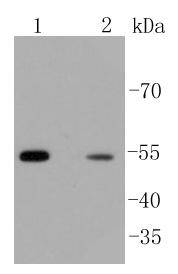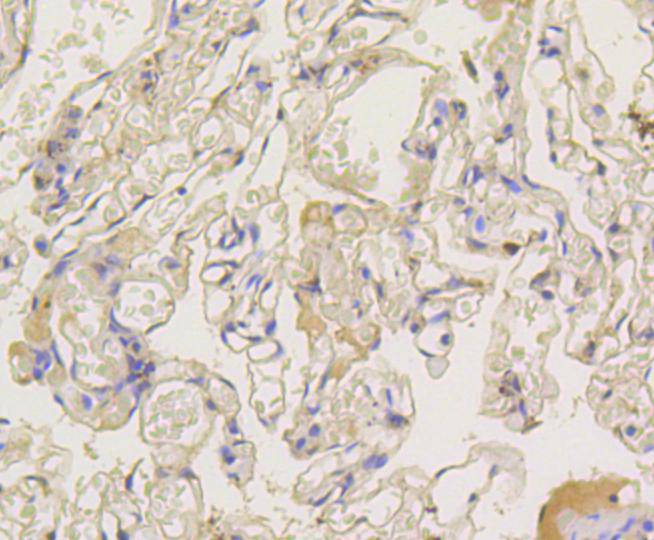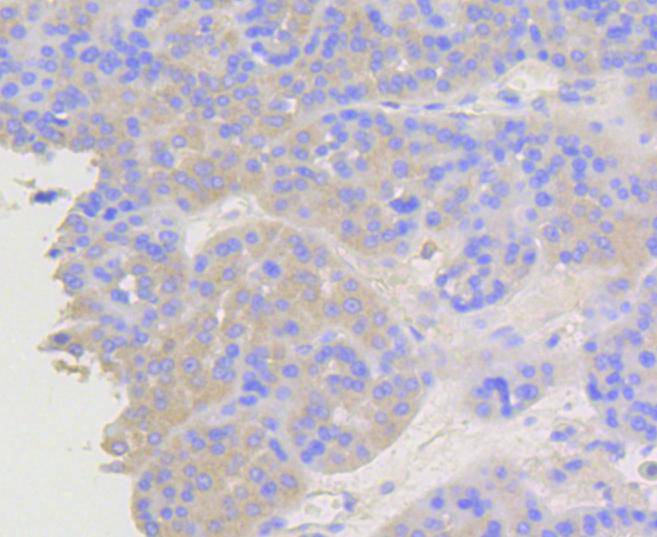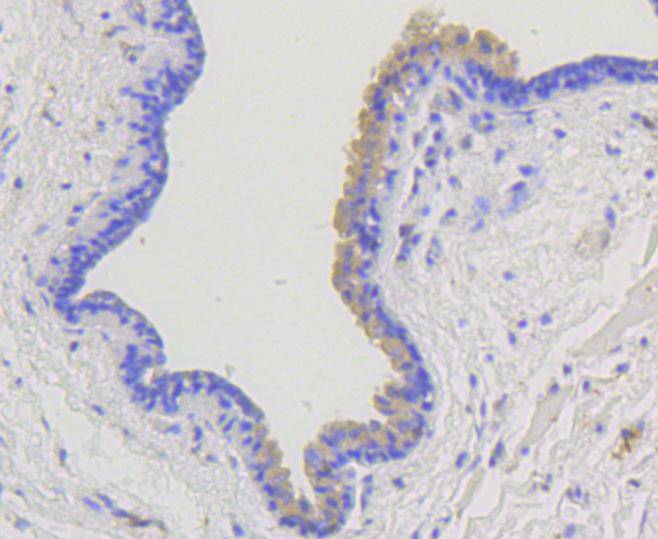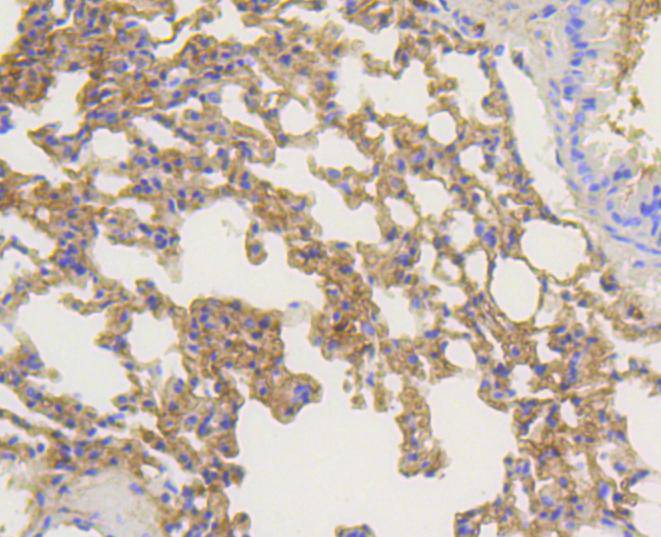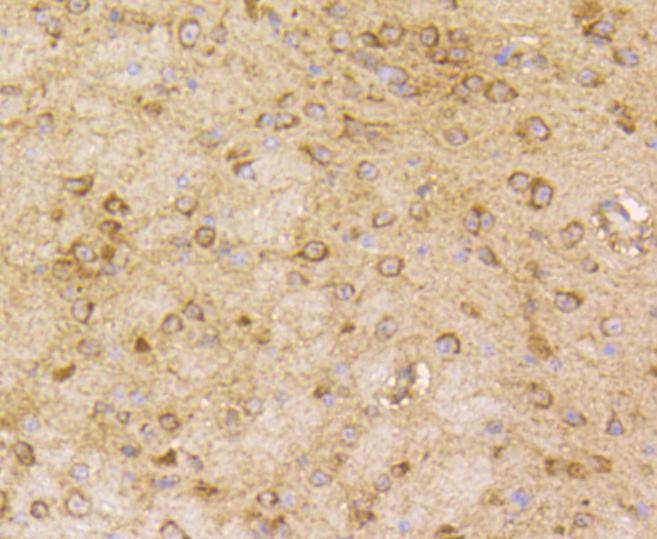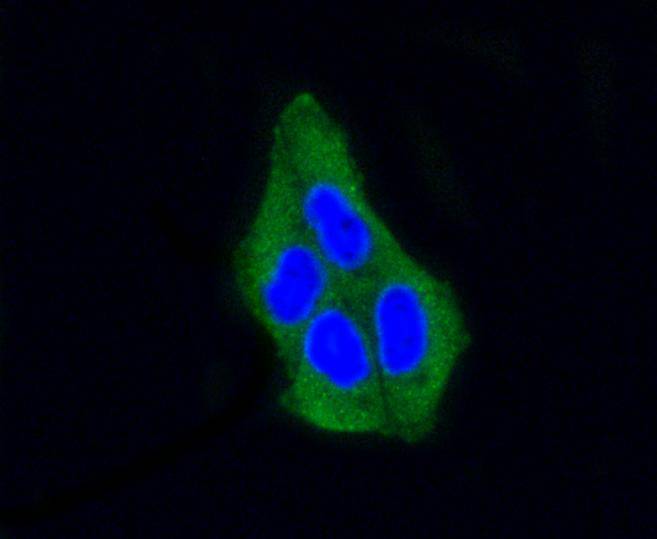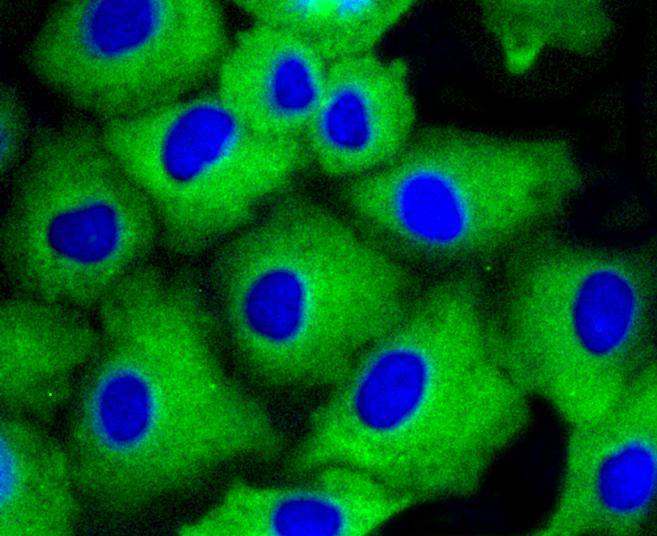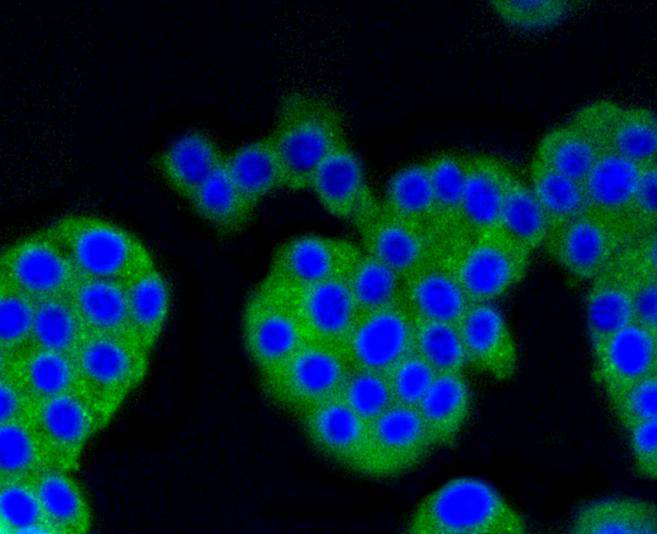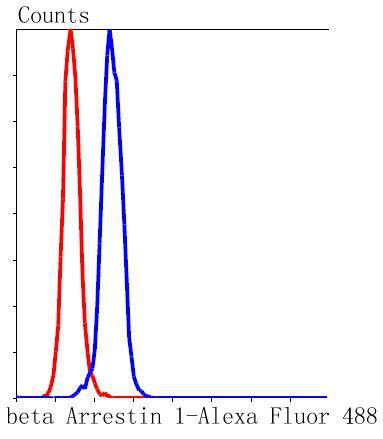The members of the G protein coupled receptor family are distinguished by their slow transmitting response to ligand binding. These seven transmembrane proteins include the adrenergic, serotonin and dopamine receptors. The effect of the signaling molecule can be excitatory or inhibitory depending on the type of receptor to which it binds. Members of theβ-Arrestin family regulate receptor binding to G proteins. β-Arrestins have been found to be located at postsynaptic sites, where they are thought to act in concert withβARK (βARK1, also designated GRK 2, orβARK2, also designated GRK 3 to regulate G protein-coupled neurotransmitter receptors. Expression ofβ-Arrestin-1 and b-Arrestin-2 is seen predominantly in spleen and neuronal tissues. It has been shown thatβ-Arrestin-1 expression is modulated by intracellular cAMP, which may be a novel mechanism for the regulation of receptor-mediated responses.

